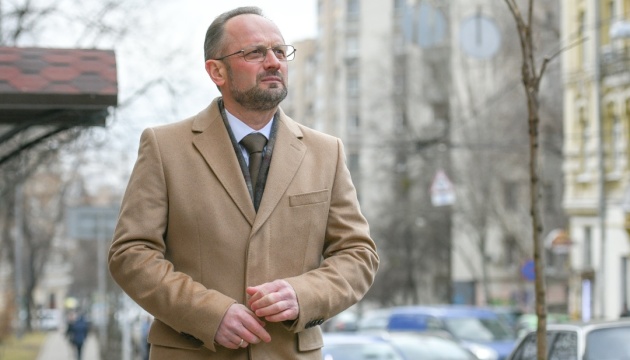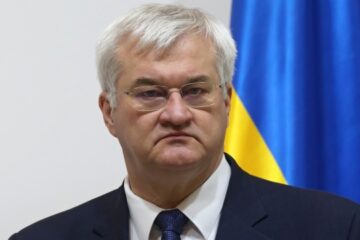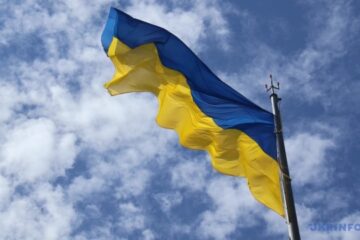There has been a whirlwind in the information space during the last two weeks which saw the Munich Security Conference, an urgent meeting of the EU and NATO leaders in Paris, a meeting of the American and Russian delegations in Saudi Arabia, and numerous statements by Donald Trump, whose second term in office began exactly a month ago today.
Ukrinform talked to politician and diplomat Roman Bezsmertny about this all, and more.
– February 20 marks a month since Trump began his second terms as president of the United States. How would you rate it, do you, too, get the impression that a whole year has passed?
– Everything about Trump is predictable: no surprises, but with a huge amount of information noise. The “elephant” is returning more slowly than one might expect, as the years are taking their toll. But even so, he has made a lot of noise. However, the efficiency of this all is about 0.25. That is, there is a lot of noise, but much less real deeds.
Has this month felt like a year? This feeling arises in those who are driven by flows of information rather than specific decisions. Trump generates a huge amount of news, but how effective are they? Some reports have it that only 18% of his executive orders have actually been put into effect. The rest have either been blocked as unconstitutional or simply thrown in the trash. Trade tariffs against Mexico, Canada, China? He introduced and immediately canceled them due to adverse consequences for the United States. His grand ideas like “Canada is the 51st state of the United States” or the purchase of Greenland, have remained at the level of words rather than deeds.
In the diplomatic field, there is also more noise than real decisions so far. End of the war in Ukraine? Zero. Agreements with Putin or Zelensky? Zero. Gathering in Riyadh? So far, these are not even negotiations, but consultations. J.D. Vance came to the Munich Security Conference, said a bunch of things there, insulted intelligent people, left behind more questions than answers. And what the result?
– However, in Europe, the statements Trump made during this time regarding Ukraine, the Russian Federation and the war were called “concessions before the negotiations even got started”…
– Here it is important to draw a distinction between Trump’s style and the real consequences of his actions. He promised to call Putin – he called. He promised to act – he acts. But the question again, is how effective his actions are.
As for his alleged “concessions” – in fact, his advisers wanted to act even tougher, but even now it is becoming clear that their ideas are not working.
It is also worth understanding who really dominates the relationship between Trump and Putin. Some believe that Putin is afraid of Trump, but this is not so – it is Trump who is afraid of Putin, who speaks to him in the language of the KGB-FSB. Trump is flattering. And flattering means that he is afraid. How he will get out of it is a question.
– How do you view Trump’s negotiating strategy?
– His principle is to raise the bar and wait for the first one to give in. He sent Zelensky a demand for 500 billion, and when he received a diplomatic refusal, he immediately backed down. Or recall when he was asked if Ukraine would be at the negotiating table. He grumbled something, and when it was announced from Kyiv that Ukraine would not recognize any results of negotiations that would take place without Ukraine, it was the same. Trump announced the next day that Ukraine would have a permanent place at the negotiating table.
If you look at all his “microduels,” he mostly fails them. For example, he wanted to buy Greenland, but Mette Frederiksen told him that Greenland is not listed on the stock exchange.
Trump follows a pattern as follows: he bursts into a room, smashes the dishes, sees that there is no effect, and then goes on – bursts into another room to smash an even more expensive service. His people, like J.D. Vance, go to attend big events, say something loud there, and Europeans react to this with a sarcastic smile, like experienced teachers to a noisy student. First they listen, then laugh, and finally they just go about their business.
– How did Trump’s team look like at the negotiations in Riyadh?
– This is a disaster. Like I said, in Riyadh, there were no negotiations, but consultations, but who conducted them? Marco Rubio has no experience in diplomacy. Mike Waltz has zero experience in negotiations. Witkoff has worked in the Middle East and has no idea what Russia is. And facing them are Lavrov and Ushakov, experienced diplomats from the Gromyko school (the long-time USSR Foreign Minister, ed.). It’s like first-year students playing chess against grandmasters. The Munich Security Conference is a telling moment. The Americans came with one view and left with a completely different one. Hegseth, Keith Kellogg – even they realized that their strategy wasn’t working. There’s nothing to say about J.D. Vance at all – his speech generated more surprise than support.
So, what can we say about Trump’s first month in office? To sum up, his style is maximum noise and minimal results.
– Let me ask you another question about J.D. Vance: can his speech be described as a “wake-up call for Europe”?
– “A wake-up call for Europe”? I don’t think so. Europe woke up on February 24, 2022. Since then, it has been acting according to the plan endorsed at the 2022 Versailles Summit. António Costa, President of the European Council, is absolutely right saying that, after 24.02.22, Europe became different – the reaction to Russian aggression against Ukraine altered the political landscape altogether. Important adjustments were also made on February 3, 2025, during an informal meeting of EU leaders in Brussels, dedicated exclusively to issues of defense and strategic strengthening of European security. It was about, in particular, increasing defense spending.
– So it was not Vance’s speech that boosted these changes?
– Vance’s speech outlined the US posture. But at least some people in the hall knew that these processes had all got underway, that the decision had been made and was being implemented. As Ursula von der Leyen and António Costa point out, the question now is not how much needs to be done, but how to do it faster and better.
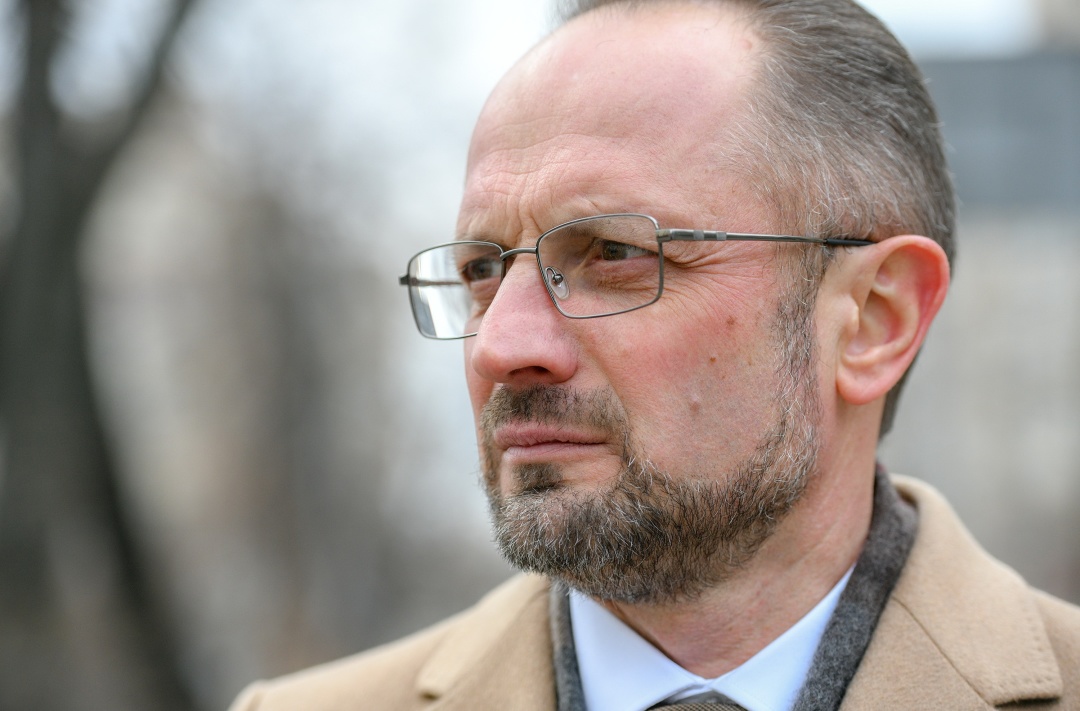
What am I leading to? That strategies have changed: Europe is ready and willing to ramp up support and is doing so.
The Europeans have furthermore seen an important thing: everything that is manufactured in Europe can also be manufactured in Ukraine, and cheaper at that. Many aspects of cooperation are currently being reviewed, first of all with respect to the defense [industrial] sector. If it can be done cheaper and faster, why spend extra money? This is a reasonable approach, and it will expand further.
– So Europe will not remain just an observer?
– The process of making Europe stronger is already irreversible. Take, for example, Poland, it has become a good example for others to emulate. Defense industrial capacity strengthening continues in Great Britain, Germany, and France among other countries.
– And what about arms supplies to Ukraine?
– Here, much depends on the United States. If America decided to reduce its involvement, Europe will compensate. Another thing is that there is a product range in relation to which the Americans say: let Europe buy them from us, then send them to Ukraine. Europe will therefore need to work out how to do this and how much it will cost.
– Concluding the topic of Munich… What’s your assessment of the outcomes of this gathering, specifically for Ukraine?
– Basically, the outcomes are favorable. Very important topics were highlighted that had not been brought to the surface previously. One such is American involvement, for example. There is more clarity on that issue as of today. Second is Europe. You know, no matter what happens there, Europe takes off and gains speed. Moreover, they understand perfectly well that Europe and the USA are already economic competitors. This has already been clearly comprehended by Europe, and this is the basis on which they will act.
– Trump, like you said above, is inflating his demands to the unrealistic level. That is, his diplomacy works on the principle that first you make inflated demands, then you get what you really need. What is Trump’s minimum plan? What is he counting on?
– His primary goal is to achieve the cessation of hostilities, that is, a ceasefire. Not peace actually, but a break in hostilities. Then he wants to shift all responsibility to Europe.
– … a ceasefire?
– Yes, just a ceasefire. I was talked about this for three years in Minsk.
— Former Ukrainian Foreign Minister Dmytro Kuleba said in a BBC interview the other day that Ukraine’s strategy should be to “draw Trump into a long game” and not give in to the impetuous pressure the US president is banking on. But how to draw Trump into this “long game”?
– Kuleba is absolutely right. This is what I have been saying since 2015. The Americans should sit at the negotiating table, rather than hide in the bushes. This is the first.
The second. We have just talked about Trump’s plan (to achieve a cease-fire, then shift everything on Europe, – ed.), but I’ll tell you what will happen. He won’t get out of here. He’s already in this process. Note that a few days ago he wanted to see himself as a party to a bilateral agreement between America and Russia. But later on, someone explained to him that he is a mediator.
– And how did that change the situation?
– Now his rhetoric has changed. At first, he didn’t see President Zelensky at the negotiating table, and now he says the opposite. And so, at the talks in Riyadh, there was already talk of bilateral relations and the preparation of a meeting between Russia and Ukraine through American mediation.
– So, the US is actually already playing the role of a mediator?
– Exactly so. There is no longer the “Normandy Format”, where Russia sought to set itself up as a mediator and talk about “two Ukrainian sides”. Do you remember how Moscow interpreted this? What Kyiv has been talking about since 2014 has happened: the US should become a mediator, a party to the process, and it will be we who will be negotiating with Russia.
– But why it is only now that this idea is being translated into reality?
– Because America initially refused this role. They transferred responsibility to Europe, which was dependent on Russian gas and oil. Russia was availing of this. And the Americans believed that they would stand on the sidelines. But no way. Time had passed, and they are forced to take on the role of a mediator. And it no longer matters who is sitting in the White House – Biden, Obama, or Trump.
From my point of view, this is the situation that is conducive to the development of a new world order.
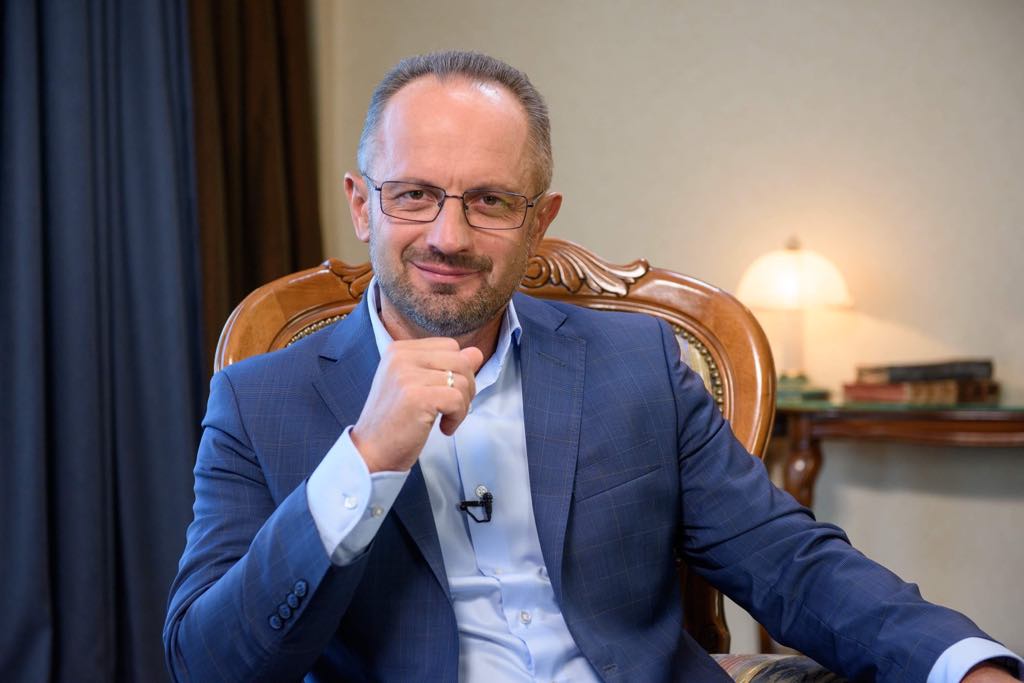
– What do you mean?
– America dreams of dividing the world, and Trump sits as a mediator between Zelensky and Putin. What a scope and range! Just imagine: he wants to rule the planets, and here he is told: sit here and listen to what Zelensky says, what Putin says. The US should have fulfilled the mediator’s role back in 2014. But they cut it short for themselves. So now, nearly 12 years into the war, they are entering this process as mediators, when the issue of world order is already high on the agenda. And how else would they do this? In the UN Security Council – there are three (the USA, Great Britain and France) against two (China and the Russian Federation). Nothing works. A new Yalta? There are two (the USA and Great Britain) against one (the Russian Federation). It won’t work either. Okay, let’s go to Riyadh then. Trump is explained that Europe must be present there, but Trump wants to be the only one. And this “be the only one” will turn into Americans sitting around watching Ukraine and Russia negotiating… This is a trap.
If the form does not match the content, then what can this end up in? At best, it will simply be a dead end. At worst, it will increase tension worldwide. Our tragedy is that we are the battlefield in the battle for this new order. Because no new world order has yet been established as a result of a global conflict. So far, this conflict is limited to two wars – the Russian-Ukrainian and the Iranian-Israeli. And proceeding from this understanding, one should have looked more broadly, if there were enough common sense. And based on an understanding of the confrontation between the “axis of evil” (Russia, China, Iran, Belarus, North Korea) and the “coalition of freedom and democracy” (the European Union, Ukraine, Great Britain, the USA), this should have kicked off the process of building up a new world order, or restructuring and transforming the United Nations… with a serious intention to achieve something. And what Trump is doing today… He only creates discomfort.
– Keith Kellogg, Trump’s special envoy, has arrived in Ukraine. He will stay here for three days. He is supposed to go to the frontline. What are your expectations from this visit?
– My wife drew attention to the age comparison: Zelensky is 47 years old, Kellogg is 81. This raises a logical question: “How will this old man go to the frontline, considering his age?” But even so, Kellogg is one of the few figures in Trump’s entourage who really understand what is happening. His visit to Ukraine in 2022, his analytical notes – this all suggests that he has some ground under his feet.
I have read his notes and I can say: he came to Kyiv with one standpoint, and will leave with a different one. But no one will learn about it. He is an experienced military man, and although his strategic thinking was formed during the Afghan war, it is this experience that can help him quickly assess the situation. I used to doubt that he would understand this, but four months ago I changed my mind. Russia is waging a war using the methods of the 70s – trench warfare, attrition. Kellogg will see this. He will also see how Ukraine has developed UAV technologies, and which components need to be improved and matured.
When back in Washington, he will undoubtedly write a substantial report. Its official recognition would mean a complete revision of the American strategy, and most importantly, an understanding that Russia is not as strong as they are trying to portray it. Let me remind you: Trump is afraid of Putin, not vice versa. And if this fear is broken, then the entire narrative built up over the past years will have to be sent to the trash.
– Don’t you think that the Rashists had a calculation when they insisted they would not talk to Kellogg?
– Yes. This being the case, the Muscovites will be saying that he is a very long distance from Trump. But this is not true. In fact, they are afraid of his involvement in this process.
– Keir Starmer, the Prime Minister of Great Britain, will travel to the United States next week to meet Trump. At the Paris Summit, he stated that London is ready to send its troops to Ukraine, his country has taken over [Washington’s] leadership role at Ramstein. Is he now being delegated to speak on behalf of a united Europe?
– Ramstein was “born” by Ben Wallace, former head of the British Ministry of Defense, it was his idea, which he and Boris Johnson implemented. And they handed it over to the United States. That is, this “child” has been British from the very beginning. This is the first.
The second is that, like Boris Johnson correctly writes, the British army is the second army in NATO. And therefore, no one except the British can play this role of the “[security] guarantor”.
The third, and very important in this situation is that Great Britain is no longer a member of the European Union. It is distanced from both Brussels and Washington. But there is another thing here – the One Hundred Year [Partnership] Agreement [between the UK and Ukraine], the role of Great Britain in the system of security guarantees, the configuration of the new European security architecture, where Brussels represents continental Europe, and the key components to this security architecture are located on both sides – in Kyiv and London. This thing is not coincidental, it has been seen for a long time. And at the same time, neither of them is tied to the EU or NATO. Yes, Britain is in NATO, and Ukraine will be in the EU, but this is a partial teamwork.
– So Starmer’s visit to the USA to meet Trump is by no means accidental?
– Absolutely not accidental. I am convinced that the British will be the leaders of the new European security architecture, and the topic of Ukraine’s security guarantees will be one of the components to this architecture.
– Let’s get back to the negotiations… Putin and Trump have announced the approaching of bilateral meeting…
– We must appreciate that Ukraine will be only one of the topics for the forthcoming bilateral meeting between Trump and Putin, and it will not dominate the agenda. What decisions can be made? An agreement to negotiate? Well, think about it, assume they agreed to negotiate. Or, speaking hypothetically, Trump says: we are giving away the territory to you, and Putin asks: will Zelensky sign it? No. And will there be elections held in Ukraine to put someone in power to sign it? No. Well, so what are we talking about here then?
– And what is Russia’s current strategy? What is the enemy’s maximum plan and minimum plan?
– They will “play Trump”, will drag out the process. And in fact, there is only one solution, that is, to implement the opposite of the “Minsk process”, meaning a sharp strengthening of Ukraine, the transfer of the strategic initiative to Ukraine, the turning on sanctions to maximum extent and then – finalization. It, this finalization, will have two options to end up with: either Russia’s surrender, or “locking” it where it is sitting now.
– Statements are heard from time to time, that Russia is preparing for war with NATO. How real is this threat? (Trump has already stated that he does not believe in it). Does Russia have the necessary resources for this, given the condition of its armed forces and economy?
– If what I‘ve just mentioned does not occur now, then the respite that will be allowed to Russia will result in the fact that Europe will come under attack. Trump has a chance to see the deplorable consequences of his initiatives. While still president.
– Are there any prerequisites for negotiations between Kyiv and Moscow in the coming months? What can these negotiations be about given the current situation on the battlefield? What decisive arguments can Ukraine offer, and are they convincing enough to conduct a dialogue from a position of strength?
– There are no such prerequisites at the moment. They can arise only in one case, this is a reassessment of Moscow and its global posture. And this will only be possible if and when the initiative passes to Ukraine. Then Trump will clearly see the true meaning of his “peace through strength” doctrine, or else he will turn into a mediator, into Monsieur Morel.
– So what is the war heading towards – a freezing, an end, continuation at the same intensity, a return into a smoldering conflict, as it was the case during the [Anti-Terrorist Operation] ATO?
– I think everything will remain as it is now. I don’t see any other option yet.
– Will the US continue to provide military assistance to Ukraine? What could be the conditions for further support?
– How high the bar has been pushed by Trump? First, he wants to avoid a new Afghanistan. There, first of all, there was no one to help. But Ukraine has those to help it! So the question is: why aren’t you helping? That’s the fork that they will never be able to solve.
– Recently, the Republicans introduced a new lend-lease bill for Ukraine to the Congress floor. How effective is it this time around?
– In today’s America, a Lend-Lease is a dream. Lend-Lease can be implemented in Europe. There still remains some understanding of what economic development planning is. In the US, it is uncontrolled. They need to take unprecedented measures to make this uncontrolled process take the Lend-Lease track. What are the unprecedented preferences with this tariff policy that Trump has announced?
– So there is no solution?
– The solution is in one place only. And this is the Russian-Ukrainian frontline – maximum amount of assistance to Ukraine. Note that I do not pronounce the word “victory”. This is more about a transfer of initiative – tactical and strategic. And then there is a solution — the “situation on the ground”, as the Fuhrer in Moscow says, on the one hand, and sanctions and losses on the other.
Another option is to build up a new security architecture where America is visible. To what extent? One has to be that “genius” as to think that the 100,000-strong armed force they have in Europe could not be replaced with Ukraine’s army. Recall how Ben Wallace, when in Vilnius, was offended that the President of Ukraine did not thank Europe, the world, Great Britain for their help. And now Zelensky, where and whenever he appears, says “thank you” for a reason and without a reason. But I keep waiting for at least one of them to thank Ukraine. They don’t understand that the situation has changed over the past three years. And it’s fundamentally about who plays what role. Yes, they do help, but who is covering Europe today, who is fighting so that Donald Trump could “fantasize” about this every day? Who is doing it? It’s determined by the Ukrainian soldier at the frontline. It is therefore necessary, both in Europe and the United States, to bring to their senses those who think that they will be able to sit out… But it won’t be like that.
Interviewed by Myroslav Liskovych, Kyiv

